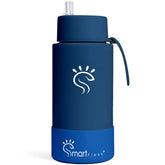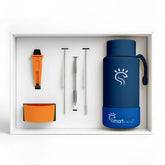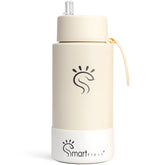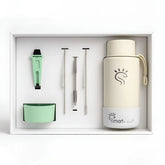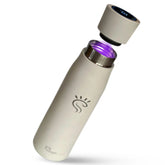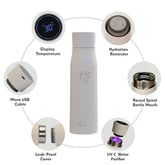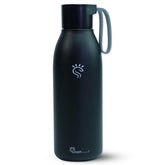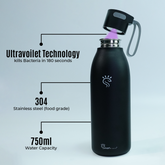Exploring Impacts Of Dehydrattion on human Health
In the hustle and bustle of daily life, it's easy to overlook one simple yet vital element - hydration. Whether you're a seasoned hiker conquering new trails, a globe-trotting traveler, or someone keen on maintaining optimal health, understanding the impacts of dehydration is crucial.
Why Hydration Matters
Water is the essence of life. It plays a critical role in almost every function of the human body, from maintaining cell health to regulating body temperature. For hikers, travelers, medical professionals, and health enthusiasts, staying hydrated is not just a recommendation; it's a necessity.
Importance of Water in Daily Life
Water constitutes about 60% of an adult's body weight. It involves essential bodily functions such as digestion, absorption, circulation, and temperature regulation. Dehydration can disrupt these processes, leading to severe health issues.
Daily Water Requirements
The average adult needs about 2-3 liters of water daily. However, the requirement can vary based on age, weight, climate, and activity level. Hikers and travelers need to pay extra attention to their hydration needs.
Signs of Dehydration
Recognizing the signs of dehydration early can prevent severe health complications. Common symptoms include dry mouth, fatigue, dizziness, and dark urine. Severe dehydration can lead to confusion, rapid heart rate, and even unconsciousness.
Effects of Dehydration on Physical Health
Dehydration can profoundly impact physical health. It's not just about feeling thirsty; the consequences can be far-reaching and sometimes dangerous.
Impact on Muscular Function
Muscles comprise about 75% water. Dehydration leads to muscle cramps, fatigue, and decreased endurance, which can reduce performance and increase the risk of injury for hikers and athletes.
Kidney Function and Dehydration
The kidneys play a vital role in filtering waste from the blood. Dehydration can impair kidney function, leading to kidney stones and other renal issues. Understanding this connection is crucial for medical professionals' patient care.
Digestive Health
Water aids in digestion and helps prevent constipation. Dehydration can lead to digestive problems, including acid reflux and indigestion. Insufficient water intake can slow the digestive process, making it harder for the body to absorb nutrients.
Cognitive Effects of Dehydration
A lack of water affects more than just your body; it can also affect your mind. Dehydration can significantly affect cognitive functions, impacting everything from concentration to mood.
Impaired Focus and Concentration
Even mild dehydration can lead to a decline in cognitive abilities. Tasks requiring attention and focus become more challenging, particularly concerning for students and professionals.
Mood Swings and Irritability
Dehydration can cause mood swings, making you feel irritable and anxious. Staying hydrated helps maintain stable mood levels, improving overall mental well-being.
Memory and Dehydration
Studies have shown that dehydration can impair short-term memory and the ability to recall information. This can be particularly problematic for those engaged in tasks requiring high mental acuity.
Hydration Tips for Hikers and Travelers
For those constantly on the move, staying hydrated can be a challenge. However, it's entirely achievable with some planning and the right tools.

Choosing the Right Water Bottle
Invest in a high-quality, lightweight water bottle. Brands like Smart Flask offer insulated drink bottles that keep your water at the right temperature, whether hot or cold. Features like UV water cleaning solutions ensure safe drinking water no matter where you are.
Regular Hydration Reminders
Set reminders on your phone or use hydration apps to track your water intake. Drink water regularly, even if you don't feel thirsty.
Hydrating Foods
Incorporate hydrating foods into your diet. Fruits like watermelon, oranges, and cucumbers have high water content and can help maintain hydration.
The Role of Hydration in Exercise Performance
For athletes and fitness enthusiasts, hydration is closely linked to performance. Proper hydration can enhance athletic abilities and prevent injuries.
Pre-Workout Hydration
Drink plenty of water before starting your workout. Proper hydration levels can improve endurance and overall performance.
Hydration During Exercise
Keep a water bottle handy during workouts. Sip water at regular intervals to replenish lost fluids and maintain energy levels.
Post-Workout Hydration
Rehydrate after exercise to replace lost fluids. This aids in muscle recovery and prevents cramps and fatigue.
Hydration and Skin Health
Your skin is your body's largest organ, requiring adequate hydration to stay healthy and radiant.
Preventing Dry Skin
Dehydration can lead to dry, flaky skin. Drinking enough water keeps your skin hydrated, reducing dryness and irritation.
Anti-Aging Benefits
Proper hydration can reduce the appearance of fine lines and wrinkles, giving your skin a youthful glow. Water also helps maintain skin elasticity and prevent premature aging.
Skin Conditions and Dehydration
Dehydration can exacerbate skin conditions like eczema and psoriasis. Keeping your skin hydrated can help manage these conditions more effectively.
Staying Hydrated in Different Climates
Different climates can have varying effects on your hydration levels. Understanding these can help you stay hydrated regardless of where you are.
Hot and Humid Climates
In hot and humid climates, your body loses water quickly through sweat. Drink water regularly and carry an insulated drink bottle to keep your water cool.
Cold Climates
Although you may not feel as thirsty in cold climates, your body still needs water. Make it a habit to drink water throughout the day, even if you don't feel thirsty.
High Altitudes
High altitudes can increase fluid loss and lead to dehydration. Drink more water than usual and avoid alcohol, as it can further dehydrate your body.
The Importance of Electrolytes
Electrolytes play a crucial role in maintaining hydration and overall health. They help balance fluids in your body and support nerve and muscle function.
Electrolyte-Rich Drinks
Consider drinking electrolyte-rich beverages, especially during intense physical activities. These drinks help replenish lost electrolytes and keep you hydrated.
Natural Sources of Electrolytes
Fruits like bananas and oranges, as well as vegetables like spinach and kale, are rich in electrolytes. Incorporate these into your diet to maintain electrolyte balance.
DIY Electrolyte Solutions
You can make your electrolyte solution at home. Mix water, a pinch of salt, and a splash of lemon juice for a natural electrolyte drink.
Conclusion
Understanding the importance of hydration and its impact on your health is crucial. Whether you're a hiker, traveler, or health enthusiast, staying hydrated is essential for your well-being. With Smart Flask, you can enjoy clean, safe drinking water on the go. Join our community and make hydration a priority in your life.
Ready to elevate your hydration game? Explore Smart Flask's innovative water bottles and start your journey towards better health today. Stay hydrated, stay healthy.

